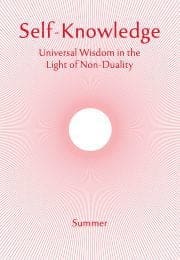Totality of Experience is Vedanta
Our life embraces the waking, dreaming and dreamless sleep states. There is something beyond these three states of consciousness. It is called Turiya, or the fourth, on which the three come and go, like waves and bubbles on water. It is known as the witness of the three.
In Western philosophy the waking state is the main field of investigation. Freud treats of the dreaming state, though not with a view to discover the ultimate Reality, but to solve the mystery of the unconscious.
Sushupti, or the state of dreamless sleep, is hardly ever touched on by the Western philosophers. It is as real as the waking and the dreaming states, and we cannot do without it. Any investigation into Reality which is limited to the waking and the dreaming states is fragmentary.
The ultimate Reality must be investigated in the total experience of human beings, including the waking, dreaming and dreamless sleep states and the fourth, turiya.
Vedanta is more practical than any of the Western systems because in it the student not only knows the Reality in the intellectual realm but realises it as well. The whole life now accords with the ultimate Reality. We are above narrowness of creed, race and nationality and we become truly universal. None is excluded from our sympathy and love. Our life is in the universal essence. Finally, we own nothing specially for our individual self and we live for the spiritual and material good of all, on the highest moral level.
Attachment to all pet theories and creeds has to be given up by a disciple. Truth, naked truth, verified in our own experience, is the sole God of a Vedantin. Shri Gaudapada Acharya, the first of the known Vedantins, called his yoga Asparsha Yoga, the yoga which has nothing to do with any object. On a thorough philosophical investigation on rational lines, all objects are known to be without any intrinsic reality. The Yoga of the sage Gaudapada is therefore unrelated to any objects. They are the passing shadows of the Reality, Atman.
Let the Hegelians and the Kantians think of this part of the philosophy of Vedanta and know that in the metaphysical investigation of the well-disciplined disciple who is above prejudices, the truth must lead to the highest and permanent good of oneself and of all others. The sage gives up his attachment to all objects of the world and is devoted solely to Atman, the common highest bliss, the basis of all.
Even one’s own individuality is held to be phenomenal by Shri Gaudapada, because it is based on change and contradiction. The ultimate Reality, called Atman, is the state of pure consciousness, free from the cause and effect relationship, in which the three states of waking, dreaming and dreamless sleep come and go, and which reveals them all under its own light.
Is there a state of peace, free from all conflicts, bringing personal satisfaction and a life devoted to the welfare of all beings? It is the Self, the pure consciousness which is self-revealed and is unconditioned. The states of waking, dreaming and dreamless sleep are its fragmentary revelations, and as they are in the conditioned consciousness, they are said to be the region of maya or avidya. Above them is the transcendent, the fourth. It is not enough to know it on the intellectual plane only. To have the consciousness of immortality, infinity and perfection, the light shining through the mind must realise itself. This is Truth. It is evident that Truth, the Absolute, is the Self, Atman. That is the ultimate Reality.
Subscribe or enrol for free guest access to read all of this article and Self-Knowledge online.
Already subscribed or enrolled? Log in:


